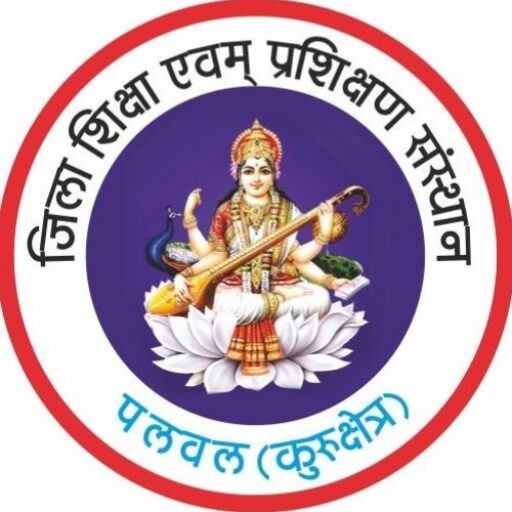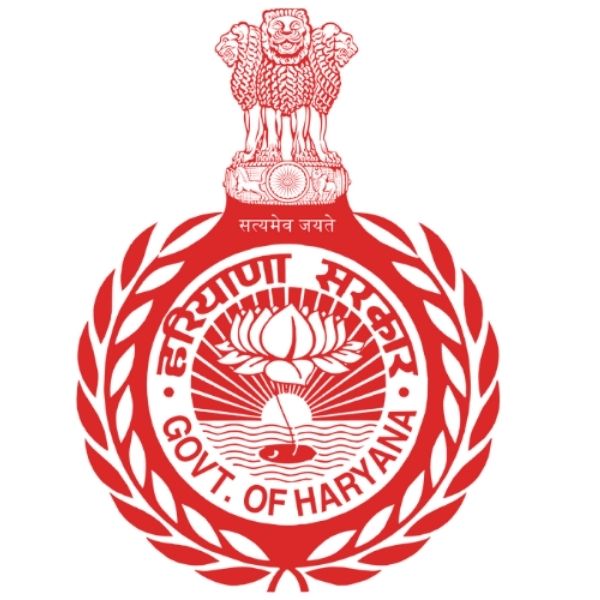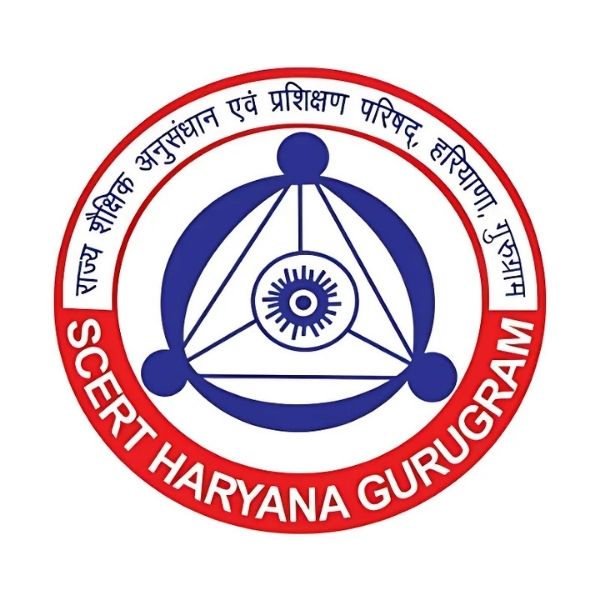Functioning of various wings of DIET Kurukshetra:-
District Institute of Education and Training (DIET) Kurukshetra, like other DIETs in India, functions as a key institution for the improvement of elementary and secondary education. It supports pre-service and in-service teacher education, curriculum development, educational research, and innovation at the district level.
DIET Kurukshetra operates through multiple specialized branches or “wings,” each focusing on a specific aspect of teacher education and school improvement.
In-Service Programs, Field Interaction, Innovation and Coordination (IFIC) Wing
The IFIC Wing at DIET Kurukshetra plays a crucial role in supporting and strengthening the professional development of in-service (currently working) teachers. It acts as a dynamic link between the institution and schools, ensuring continuous academic improvement and innovation in teaching practices.
In-service Education:
- A teacher may serve for years. During this long period, requirements of his/her profession change continuously due to changes in policy, priorities, technology, society and the world at large. Continuous in-service education of teachers is necessary to keep them abreast of the changes taking place in their professional environment and to develop their skills, competencies and attitudes in light of their changing role.
- “The Indian Education Commission (1966) recommended that in-service programmes should be based on research inputs and training institutions should work on a 12-month basis and organise programmes like refresher courses, seminars, workshops, etc.”
- The report of the ‘National Commission of Teachers’ mooted the idea of Teachers’ canters that could serve as meeting places, where talent could be pooled and teaching experience could be shared.
- According to ‘National curriculum Framework-2005’, in-service education can play a significant role in the professional growth of teachers and function as an agent for change in school-related practices. It can help teachers gain confidence by engaging with their practices and reaffirming their experiences. It can provide opportunities to engage with other teachers professionally and to update knowledge.
- Any curriculum renewal effort needs to be supported with a well-thought-out and systematic programme of in-service education and school-based teacher support.
- In-service education cannot be an event but rather is a process, which includes knowledge, development and changes in attitudes, skills, disposition and practice — through interactions both in workshop settings & in the school. It does not consist only of receiving knowledge from experts but promotion of experiential learning, incorporating teachers as active learners and peer group-based review of practice can also become a part of the overall strategy.
As per recommendations of NEP-2020, continuous professional development of 50 hours per year will be mandatory for all categories of teachers and school heads from foundational stage to secondary stage.
Field Interaction:
DIET is expected to maintain the closest possible contact with the field, i.e. with schools, teachers, NFE/AE/AIE centres & their instructors. Activities taken up in the pursuance of this may be described as ‘Field Interaction’ activities and would be one of the chief modalities of providing resource and learning support to elementary schools/secondary schools (in Haryana W.E.F. Jan. 2007) and AIE centres.
Main Aims
❖ Identification of the practical problems being faced in the field so as to devise ways of tackling them.
❖ Obtaining information about worthwhile experiences, innovations, success stories, etc.
❖ Providing academic guidance, advice, extension and resource support to the field (including sharing of resources).
Extension Work:
‘Extension’ means dissemination of all information and messages among educational workers (teachers, heads, instructors, etc.) for effective implementation of policies, programmes and interventions in various areas of a DIET’s concern as given below:
❖ New policy decisions, programmes and initiatives
❖ Results of new research studies, experiments and techniques developed, e.g. for improving enrolment, retention, attainment/achievement levels
❖ Other matters of professional interest to the teachers/instructors
Dissemination of information in the district would be primarily the responsibility of the DIET.
Ways to Organise Extension Work
❖ Periodic meetings/seminars/conferences of block-level functionaries, heads of school complexes and heads of schools so that they could, in turn, disseminate information/messages in monthly meetings of heads of schools/school complexes/teachers/supervisors/instructors.
❖ Publication of a newsletter and an institute journal to be sent to every school/AIE centre in the district. The newsletter may be published quarterly. The institute journal may be published annually to begin with and bi-annually after it gets established.
❖ Production and distribution of brochures, research abstracts, etc. among school and AIE centres.
❖ Circulation of video and audio cassettes, slides and various other teaching aids among schools/school complexes/AIE centres.
❖ A systematic programme of visits by DIET faculty to school complex meetings, ABRC meetings, individual schools & AIE centres, and of calling Headmaster/teachers/instructors to the DIET for exposure to new ideas, information and materials.
Other Field Interaction Activities:
➢ Encouraging teachers, heads and AIE personnel to address their professional/academic problems to the DIET in writing as well as in meetings.
➢ Encouraging teachers, instructors, etc. to write papers/articles about their experiences and views on topics of professional interest.
➢ DIET would also identify and create a resource pool of field workers of high calibre, competence and commitment.
➢ Each member of the DIET faculty is expected to take a few classes/seminars every week – or at least every fortnight in a school/AIE centre.
➢ Collecting best practices from the field and sharing them further.
Responsibilities under NEP-2020: In-service Training:
IFIC department would:
■ Identify training needs of teachers from foundational stage to secondary stage in the district and prepare a plan for meeting such needs.
■ Prepare an annual calendar of all in-service programmes of foundational stage to secondary stage teachers to be held in the DIET.
■ Organize in-service programmes of foundational stage to secondary stage teachers in the DIET throughout the year.
■ Evaluate the quality and efficacy of these programmes, and strive for their continuous improvement.
■ Assist educational authorities in planning & coordination of In-service educational programmes.
■ Organisation of induction training programmes for all newly appointed/promoted teachers and school heads.
■ Orientation of Master Trainers/KRPs and assessment of their performance.
■ Organisation and coordination of various online trainings for the teachers and school heads.
■ Provide academic support to Saksham Sahyogies, ABRCs and BRPs.
■ Serve as a district level study centre for in-service education in distance-cum-contact modes.
■ Maintain district-level records:
● Block wise list of govt. & private recognised schools
● Staff statements (sanctioned posts vs. teachers in position)
■ Maintain a data-base of all persons who undergo training at DIET (face to face or online).
■ Organize follow-up activities post-training.
■ Serve as a reference and resource centre for teachers continuing their education.
■ Disseminate results of studies, innovations & action research.
■ Publish periodic newsletter and institute journal.
■ Maintain record of DIET faculty’s own in-service training.
■ Record all types of training/resource support provided.
■ Collect and share best practices from the field.
■ Maintain monitoring and school visit records.
Research and Innovations:
➢ IFIC department will be the nodal cell of research activities in DIET.
➢ Coordinate research activities with SCERT and disseminate results.
➢ Plan and coordinate action research studies by DIET faculty.
➢ Organise conferences and seminars at the district level.
➢ Participate in state and national conferences/seminars.
➢ Support other DIET departments in:
■ Conducting action research
■ Paper publication
■ Paper presentations
➢ Train teachers on action research.
➢ Collect and share best practices and innovations from the field.
Innovative Idea:
DIET can impart above-mentioned training to the teachers of private recognised schools on payment basis. In this way, DIET can generate its resources.
DIET Wing: Department of In-service Programmes, Field Interaction and Innovation Coordination (IFIC)
Nodal SCERT Wing: Teacher Education Wing
| Activity | Frequency | Success Metrics |
|---|---|---|
| Organise meetings with master mentors to discuss academic requirements of teachers and schools, mentoring compliance and progress | Monthly | ● Number of meetings conducted with mentors● Number of master mentors connected with |
| Create a report based on the discussions with mentors and submit a report to SCERT in the format shared by SCERT | Monthly | ● Timely submission of report |
| Visit at least four unique schools and assess academic performance of teachers with the use of a checklist shared by SCERT | Weekly | ● Number of schools visited |
| Create a record of all the grievances highlighted by mentors/teachers in the format shared by the SCERT | Real-time | ● Number of grievances recorded |
| Resolve or escalate all grievances to the relevant authorities and track them on weekly basis | Weekly | ● Number of grievances resolved and escalated |
| Organise mentoring sessions for aspirant teachers to train them on research and writing good quality papers | Quarterly | ● Number of mentoring sessions organised |
| Conduct training need assessments in the district based on the format circulated by SCERT (based on NEP 2020) | Annually | ● Number of TNA conducted for leaders (Heads, Principals)● Number of TNA conducted for Sr. Secondary and Secondary level teachers● Number of TNA conducted for primary level teachers |
| Conduct in-service trainings based on the calendar | Monthly | ● Actual number of trainings conducted in the month● Number of SCERT mandated trainings conducted● Number of districts’ need based trainings organised by DIETs (Other than those covered in 2)● Number of trainings organised for DMS/DSS and BRPs/ABRCs● Number of trainings organised for professional development of ESHM, Principals, HTs on leadership● Number of induction programmes organised for new staff● Number of refresher courses organised● Number of direct interventions in schools |
| Share information from the state on all relevant WhatsApp groups with block officials, teachers and mentors | Real-time | |
| Create a plan for in-service trainings to be conducted in the District and share with Planning and Management Wing | Annually | ● Target number of trainings planned in the year● Actual number of trainings conducted in the year |
| Corresponding to the plan, create an annual calendar for the trainings to be conducted during the year | Annually | |
| Basis the plan, create annual and monthly calendars for the in-service trainings to be conducted | Monthly | |
| Conduct monitoring and evaluation of the training programmes | Monthly | ● Number of target learning outcomes to be achieved● Number of learning outcomes actually achieved |
| Share the findings from the impact evaluation studies with SCERT | Monthly | |
| Organise follow-up doubt-clearance sessions with the teachers | Monthly | ● Number of doubt clearance sessions organised |
| Provide the teachers a ready check-list of actions they can take to implement the training in the classroom | Monthly | ● Number of checklists shared with the teachers |
| Create and continuously update the database of teachers who attend in-service trainings | Monthly | ● Number of teachers attended more than 5 trainings● Number of teachers attended all trainings |
| Create and continuously update the digital repository of all newsletters and journals published by the DIETs | Quarterly | |
| Keep a record of training programmes/workshops/seminars/orientation courses, etc. attended by DIET faculty | Real-time | ● Number of training programmes/workshops/seminars/orientation courses conducted in a month |
| Fill a self-evaluation form post conducting the training in the same format as shared by SCERT and then share it with SCERT | Real-time | ● Number of DIET faculty filled self-evaluation form |
| Create a training-wise digital repository of the learning material shared with teachers during in-service trainings | Real-time | ● Number of resource materials collected in the repository |
| Maintain a record of all the mentor meetings, school visits conducted by the DIETs | Real-time | |
| Record minutes of all meetings in the format shared by SCERT | Real-time |


